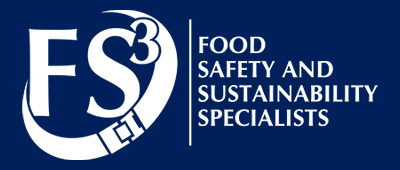Growing Together Summer 2019
FS3: Are you exempt from the Food Safety Modernization Act’s Product Safety

As the Grow West Food Safety Consultant, I receive many inquiries about the Food Safety Modernization Act (FSMA) after the California Department of Food and Agriculture sent out survey forms recently. As with most government regulations, the applicability of the FSMA Produce Safety Rule (PSR) depends on a few specific criteria.
The PSR may apply if the food you grow is “produce,” which generally includes any fruit or vegetable, mushroom, sprouts, peanut, tree nuts and herbs used for human food. Produce does not include food grains like rice, wheat, oats, etc. Next, it must be a raw agricultural commodity (RAC). For example, a tomato, an apple or a head of lettuce is a RAC. If you processed these by canning, juicing or chopping, they are no longer RACs under the FSMA definition, so the PSR would apply before they were processed.
There is an exemption for produce rarely consumed raw. According to the FSMA, there is a distinction between a RAC and produce that is rarely consumed raw.

The official list for produce rarely consumed raw is:
- Asparagus
- Black, great Northern, kidney, lima, navy, and pinto beans
- Garden beet (root and top)
- Sugar beet
- Cashew
- Sour cherry
- Chickpea
- Cocoa bean
- Coffee bean
- Collard
- Sweet corn
- Cranberry
- Date
- Dill (seed and weed)
- Eggplant
- Fig
- Ginger
- Hazelnut
- Horseradish
- Lentil
- Okra
- Peanut
- Pecan
- Peppermint
- Potato
- Pumpkin
- Winter squash
- Sweet potato
- Water chestnut.
Recently added to this list are wine grapes and almonds. Produce grown for personal or on-farm consumption is exempt. Rest assured; your garden is safe.
Commercial processing may also be eligible for exemption. The processing can include canning, pasteurization, irradiation, etc. To qualify for the exemption, you must disclose in each shipment of your produce that the food is “not processed to adequately reduce the presence of microorganisms of public health significance.” This can be done on a load tag or bill of lading with copies retained. You must retain a letter of assurance from the processor that states that the processing “adequately reduces the presence of microorganisms of public health significance”.
You may be exempt if the 3-year average value of all produce sold is less than $27,595 ($25,000 2011 basis). If you are over this total value, you still may be qualified for an exemption if most of the food (not just produce but grains, dairy, hay, etc.) is sold to qualified end users, which means consumer, restaurant or retail food establishment within 275 miles, and the value is less than $551,900 ($500,000 2011 basis).
Modern agriculture has countless complications to navigate, and at Grow West, we are here to help our customers manage successful businesses while understanding and adhering to regulations affecting their operations. Should you have any questions regarding the Food Safety Modernization Act, please reach out to us.
